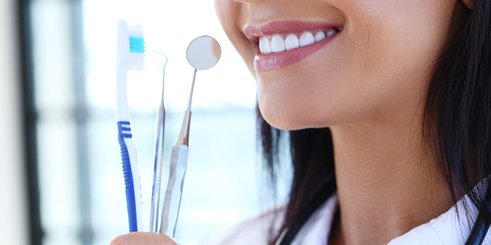Blog

Deep Cleaning
If you have ever been to the dentist, you have probably been told about the importance of flossing and brushing, as well as regular appointments for dental cleanings to maintain oral health. However, even with best oral hygiene practices, plaque can be an issue. If plaque accumulates, it can harden around the gumline and become tartar. Tartar build up, especially below the gumline, is a precursor to gum disease. This type of build up is impossible to remove at home, and requires special deep cleaning techniques known as scaling and root planing. In fact, these methods are the best ways to treat and prevent gum disease.
During the deep cleaning, the periodontist will use an ultrasonic scaler to scrape away tartar from the surface of the teeth. He or she will also this instrument to remove black from below the surface of your gums. If you have periodontal disease, or just a lot of tartar buildup, chances are that your gums are already tender and sensitive. While scaling and root planing are not painful procedures, we will provide topical anesthetic to ensure your comfort during the visit. Your periodontist may ask you to schedule a follow up visit to be certain that your gums have returned to health.
If you have been experiencing sensitivity, deep cleaning may initially irritate the gums, but leave you feeling much better in the long run. With all that plaque and tartar removed, your teeth will feel smoother and cleaner and your gums will be healthier. If your gums are pink, healthy and supple after the scaling and root planing, you will likely not need any further treatment. However, maintaining an oral hygiene routine at home is crucial for keeping gum disease at bay.
Generally, it is advised to brush twice a day and floss at least once. It’s especially important to make sure you go to bed with clean teeth. It’s a good idea to brush and floss your teeth right after you have eaten your last meal or snack; if you wait until right before bed, you might be overly tired and tempted to skip. Don’t hesitate to speak to us about how you can improve your oral hygiene, it’s what we’re here for!
